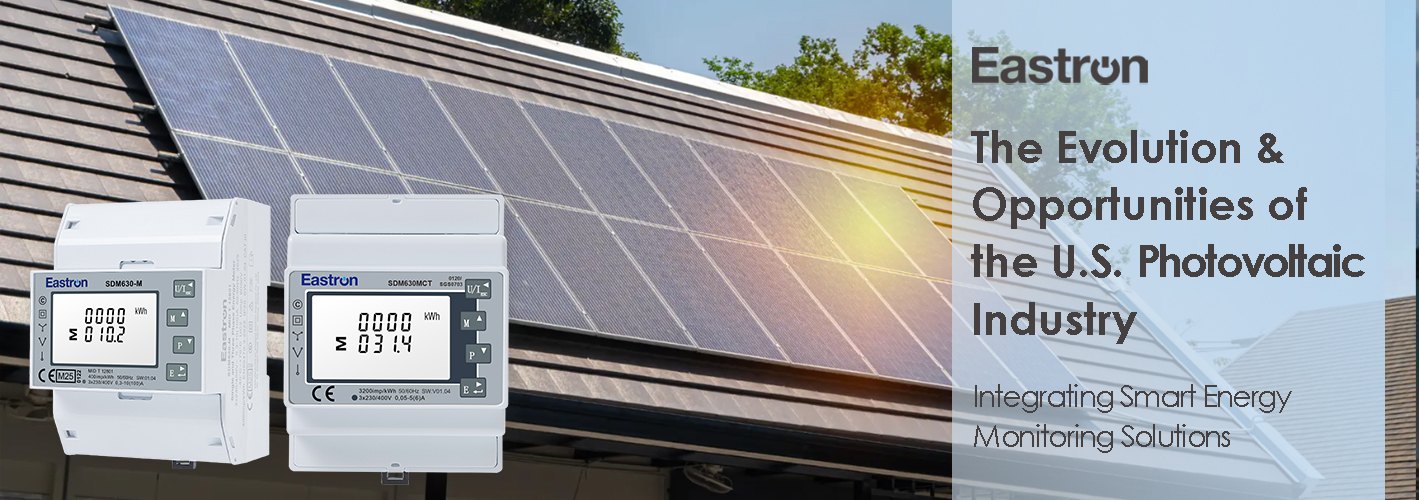Product Consultation
Your email address will not be published. Required fields are marked *

Current Status of the U.S. Photovoltaic Industry
The U.S. photovoltaic (PV) industry is undergoing rapid transformation, driven by policy incentives, technological advancements, and the urgent need to decarbonize energy systems. Despite significant growth in solar installations—with capacity doubling over the past decade—the industry faces challenges in optimizing supply chain efficiency and energy yield. According to recent analyses, the digitalization of PV supply chains remains incomplete, limiting full-scale optimization of production, distribution, and grid integration. For instance, thin-film solar technologies and emerging perovskite-based cells promise higher efficiency but require precise manufacturing controls and real-time performance monitoring.
Meanwhile, grid instability and intermittent energy output from solar farms highlight the need for advanced energy management systems. Industrialization and urbanization have intensified pressure on energy infrastructure, with water scarcity and pollution further complicating sustainability efforts—a parallel challenge observed in global water conservation campaigns. These factors collectively underscore the critical role of energy digitalization in unlocking the PV sector's potential.
Future Prospects: Digitalization and Smart Monitoring
The future of PV lies in integrating intelligent monitoring technologies to enhance operational transparency and resource efficiency. By 2035, solar energy is projected to dominate the U.S. renewable mix, with innovations in battery storage and hybrid systems (e.g., wind-PV-hydro) enabling round-the-clock energy supply. However, achieving this vision demands granular data on energy production, consumption, and grid interactions.
-Smart energy meters, particularly those tailored for PV applications, are pivotal in this transition. These devices enable:
-Real-time voltage and current monitoring to detect inefficiencies or faults in solar arrays.
-Sub-metering capabilities to pinpoint energy waste across industrial, commercial, and residential sectors.
-Data-driven decision-making for predictive maintenance and yield optimization.
For example, remote voltage monitoring systems powered by artificial neural networks (ANNs) have demonstrated success in improving grid reliability and reducing downtime. Such advancements align with the industry's shift toward decentralized energy systems and prosumer-driven markets.
Eastron's UL-Certified Solutions for the U.S. Market
To address these needs, Eastron's product portfolio offers robust, compliance-driven solutions designed for the U.S. PV sector. Our UL 61010-certified energy meters meet stringent safety and performance standards, ensuring seamless integration with American grid infrastructure:
SDM630-M / SDM630-MB
-Three-phase energy measurement with 100A direct input, ideal for medium-scale solar installations.
-UL-listed for electrical safety compliance and FCC-certified for electromagnetic compatibility, streamlining regulatory approvals for U.S. market entry.
-Modbus RS485 (SDM630-M) or M-Bus EN13757 (SDM630-MB) communication protocols for flexible data transmission.
-DIN-rail design for easy installation, save the cost of installation and avoid the error of wiring.
SDM630MCT / SDM630MCT-MB
-Dual-certified with UL safety standards and FCC emission/immunity compliance, tailored for rigorous grid integration in North American utility projects.
-CT-operated measurement for high-current applications, such as utility-scale solar farms.
-Supports Modbus RS485 (SDM630MCT) or M-Bus (SDM630MCT-MB), enabling compatibility with SCADA and energy management platforms.
-Real-time monitoring of active/reactive power, harmonics, and phase angles to enhance grid stability.
These innovative devices enable operators to monitor and manage real-time energy generation and distribution across distributed PV systems while ensuring compliance with federal and state renewable energy regulations. By leveraging predictive analytics to anticipate maintenance needs and optimize energy efficiency, the solutions simultaneously reduce operational expenditures and minimize resource waste, creating a comprehensive approach that addresses both regulatory requirements and cost-effective renewable energy management.
Conclusion: Bridging Innovation and Market Demand
The U.S. PV industry's trajectory hinges on its ability to adopt digital tools that bridge the gap between energy generation and smart consumption. As solar technologies evolve—from perovskite cells to hybrid storage systems—the demand for precise, reliable monitoring solutions will surge. Eastron's UL-certified meters not only meet current regulatory requirements but also future-proof energy infrastructure against emerging challenges. By leveraging these tools, stakeholders can accelerate the transition to a resilient, low-carbon energy economy.
Your email address will not be published. Required fields are marked *
We develop and produce high performance electricity meters, power analyzers, current sensors, communication modules and management systems. China Custom Smart Meters Manufacturers and Factory
Address:NO 52, Dongjin Road, Nanhu, Jiaxing, Zhejiang, China
Copyright @ Eastron Electronic Co., Ltd. All rights reserved Electricity Meters Manufacturers
